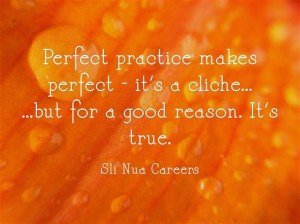By Liam Horan, Career Coach & Managing Director, Sli Nua Careers
Q: Can you talk about the best prepared candidate you ever came across – by this, I mean the candidate who was best prepared for an upcoming interview – (LT, email).

A: I like the inclusion of the words ‘prepared’, because I am blue in the face telling people, including readers here, that preparation is more than 9/10
of the law, writes LIAM HORAN, Career Coach, Sli Nua Careers. In fact, before I elaborate on the best prepared candidate I have ever worked with, I would like to emphasise how some good candidates perform poorly because of complacency – because they can speak well, they trust their verbal dexterity to get them through most situations, but a good interviewer will go beyond the obvious to find a dearth of knowledge or preparation.
The best prepared candidate was a new graduate in the area of renewable energy. He was going for his first job and he had aimed high. Here are five relatively simple things he did well:
1. Knowledge: He knew all that he needed to know about the company. They were a large, multinational organisation and, as so often happens with broadly-based, large organisations, the nature of the actual job was not immediately apparent. This candidate dug much deeper, though – through a lecturer he made direct contact with a current employee. A 45-minute phone call with that employee proved most informative not just in terms of the company’s operations, but the specifics of the actual role.
2. Pen to paper: He wrote down what he wanted to talk about in the interview – not word for word, but in general terms. Based on the discussion he had with the employee, he identified seven key areas in the role and wrote down examples, from his studies and some work experience he had carried out, of how he could meet therequirements of the position. He did this in a bullet point fashion rather than full narrative.
 3. Practice, practice, practice: He came to me for interview training, and committed himself wholeheartedly to the session. Afterwards, he enlisted the help of his brother as a mock interviewer right up until the day before the interview. Each time, he asked his brother to mark him against the seven key issues outlined above. The interview training session had revealed that he tended to be terse in his answers: this was something his brother also assessed during the mock interviews.
3. Practice, practice, practice: He came to me for interview training, and committed himself wholeheartedly to the session. Afterwards, he enlisted the help of his brother as a mock interviewer right up until the day before the interview. Each time, he asked his brother to mark him against the seven key issues outlined above. The interview training session had revealed that he tended to be terse in his answers: this was something his brother also assessed during the mock interviews.
4. Ideas maketh the candidate: From his research, he came up with ideas for how he would do the job better than the previous incumbent. These were not dramatic improvements – but they did show that he was thinking about the actual role. One idea that the panel really liked involved using video footage to capture information out on site, often in difficult weather conditions.
5. Confident: Because he had put in the work, he was confident on the day. From early on, the panel gave him positive feedback. This further built his confidence and he left knowing he had acquitted himself extremely well. He got the job – it’d be a bit of a downer for this column if he hadn’t, in fairness – and it was a massive boost at the start of his career. As you can see, all of the above was logical and achievable. Give yourself plenty of time to commit to the task of doing a good interview and you will find it a much easier process than you may have imagined.
Liam Horan is Managing Director of Sli Nua Careers Ltd. You can read more blogs from Sli Nua Careers coaches HERE, and make a booking for CV Preparation and Interview Training.